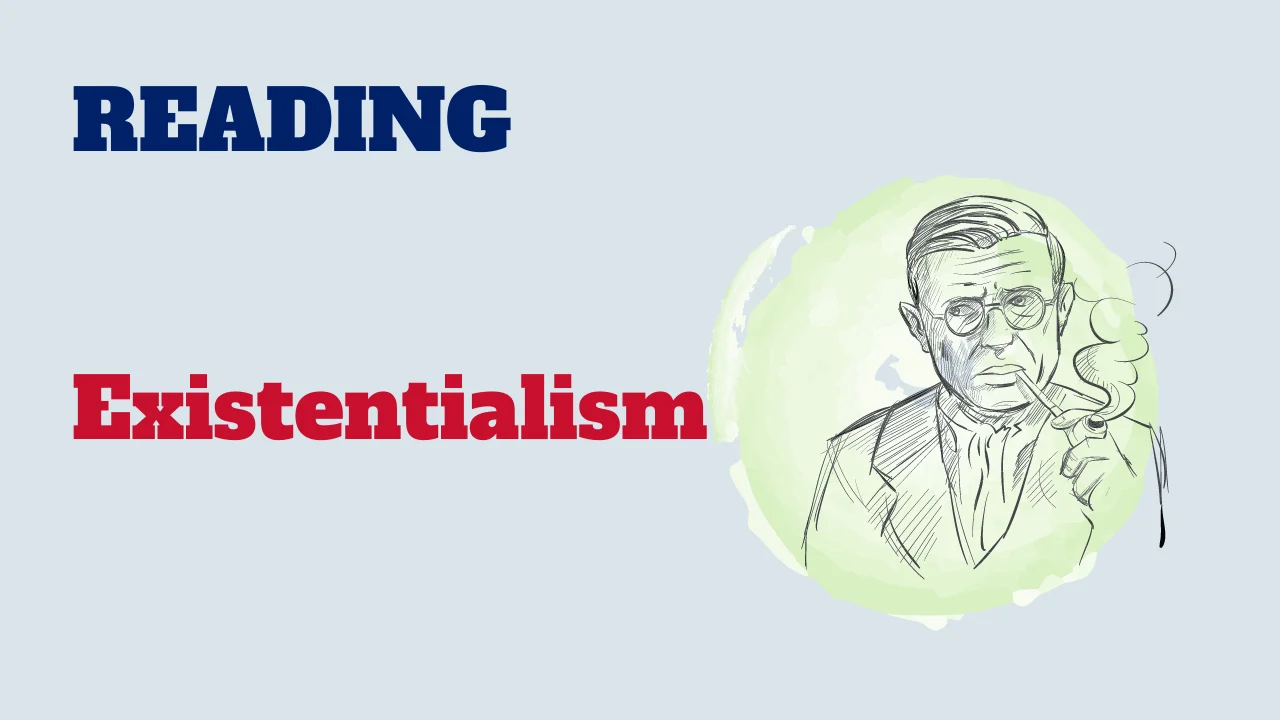Welcome to an exploration of existentialism, a philosophical inquiry that delves into the complexities of human existence. In this reading activity, we’ll investigate the essence of existentialist thought, its key concepts, prominent figures, and its impact on various disciplines.

Get ready to embark on a journey through the realm of existentialism, where questions of meaning, purpose, and authenticity await.
Text: Existentialism
Existentialism is a philosophical movement that explores the nature of existence, freedom, and the meaning of life. Emerging prominently in the 20th century, existentialism is rooted in the works of thinkers like Søren Kierkegaard, Friedrich Nietzsche, Jean-Paul Sartre, and Albert Camus. These philosophers grappled with the human condition, emphasizing individual experience, choice, and responsibility.
Central to existentialist thought is the concept of individual freedom and the inherent responsibility that accompanies it. Existentialists argue that human beings are free to make their own choices, but this freedom comes with the burden of defining one’s essence through actions. Jean-Paul Sartre famously declared that “existence precedes essence,” meaning that individuals first exist and then create their own identity and values through their choices and actions, rather than being born with a predetermined purpose or nature.
Existentialism also delves into the themes of anxiety and absurdity. The recognition of one’s absolute freedom and the weight of responsibility can lead to existential angst or anxiety. This anxiety stems from the realization that there are no universal guidelines or external authorities to dictate how one should live, forcing individuals to confront the often arbitrary and absurd nature of existence. Albert Camus explored this in his essay “The Myth of Sisyphus,” where he likened human life to the futile labor of Sisyphus, eternally pushing a boulder up a hill only to have it roll back down.
Another key aspect of existentialism is the search for meaning in an indifferent or meaningless universe. While existentialists acknowledge the lack of inherent meaning in life, they argue that individuals can create their own meaning through authentic and intentional actions. This pursuit of authenticity involves living in accordance with one’s true self and values, rather than conforming to societal expectations or external pressures.
Existentialism has profoundly influenced literature, psychology, theology, and various aspects of modern culture. Writers like Franz Kafka, Fyodor Dostoevsky, and Samuel Beckett explored existential themes in their works, presenting characters who grapple with the absurdity and meaninglessness of life. These narratives often depict individuals confronting the limitations of human existence and the struggle to find personal significance.
In psychology, existentialist ideas have informed existential psychotherapy, which focuses on helping individuals find meaning and navigate the anxieties associated with freedom and responsibility. This therapeutic approach emphasizes personal agency and the importance of living authentically.
Theology, too, has been influenced by existentialist thought. The works of theologians like Paul Tillich and Reinhold Niebuhr integrate existentialist concepts, exploring the intersections of faith, doubt, and the human condition. They address the existential crises of meaning and the role of religion in providing a framework for understanding human existence.
Existentialism’s emphasis on individual experience and subjective reality has permeated popular culture, influencing films, art, and music. Movies such as “The Matrix,” “Fight Club,” and “No Country for Old Men” reflect existential themes of choice, freedom, and the search for meaning. These cultural artifacts resonate with audiences by addressing fundamental questions about identity, purpose, and the nature of reality.
Despite its sometimes bleak outlook, existentialism offers a framework for empowerment. By embracing the freedom to define their own existence, individuals can live more intentional and fulfilling lives. The existentialist call to authenticity and personal responsibility encourages people to engage deeply with their own values and experiences, fostering a sense of purpose and self-determination in a world that often seems indifferent or chaotic.
Comprehension questions
Congratulations on completing the exploration of existentialism! By delving into its core concepts, prominent figures, and impact on various disciplines, you’ve gained insight into this intriguing philosophical inquiry. Remember to reflect on the questions of meaning, purpose, and authenticity as you continue to explore existentialist thought and its relevance to understanding human existence.



